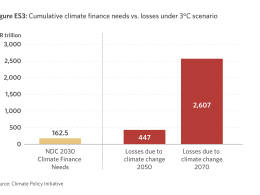The Asia Pacific (APAC) region needs to speed up the deployment of existing low-carbon technologies, support emerging climate solutions, and significantly increase financing to stay aligned with the Paris Agreement, according to the newly released “Asia Pacific Energy Transition Outlook” by BloombergNEF (BNEF), in collaboration with GenZero. This report builds on findings from BNEF’s “New Energy Outlook 2024” and focuses on six key APAC markets: China, India, Japan, South Korea, Indonesia, and Vietnam.
As one of the fastest-growing economic regions, APAC faces immense challenges in decarbonising while ensuring an affordable and secure energy supply for its growing needs. The report highlights that existing cost-effective low-carbon solutions, such as solar, wind, and electric vehicles, present a substantial economic opportunity for the region.
However, achieving net zero by 2050 will require an intensified pace of technology deployment, especially between now and 2030. Governments and corporations must urgently accelerate the commercialisation and large-scale deployment of emerging decarbonisation technologies. Additionally, the region will need to triple annual investments in energy transition technologies to reach US$2.3 trillion over the 2024-2030 period, according to the report.
Frederick Teo, CEO of GenZero said, “Fundamental decarbonization requires an energy-centric approach. Clean power alone could abate 50% of Asia Pacific’s cumulative emissions between 2024 and 2050. While the Asia-Pacific region enjoys an abundance of natural resources, including the ability to generate considerable renewable energy, this potential is not evenly distributed across countries in the region. Different levels of socioeconomic development mean not all countries have the ability to effect a just energy transition on their own. Cross-border collaboration and the ability to catalyze financing from the public, private, and philanthropic sectors globally will be key to accelerate the deployment of cost-effective solutions in the coming years to meet our targets.”
Jon Moore, CEO of BloombergNEF said, “Carbon markets could be a critical additional source of funding for APAC markets to finance early-stage decarbonization technologies and accelerate phase-out of existing unabated coal power plants. Emerging technologies may require greater support from governments and multilateral institutions to catalyze deployment. They may face higher barriers to financing due to the uncertainties around technology performance, supply chains and profitability. Collaboration with development institutions and international banks can help mobilize greater capital flow for emerging technology projects.”
To achieve net-zero emissions in APAC’s energy systems, the report outlines a mix of technologies at various stages of development that are needed for deep decarbonization. It identifies nine key technology drivers critical to transitioning from a high-carbon to a low-carbon energy system.
Among these, four technologies are already mature and commercially scalable: electric vehicles, renewable power, energy storage, and power grids. While these technologies still need to scale up significantly to reach net-zero targets, they face minimal technology risk and come with little to no economic premiums. However, they could still encounter regulatory challenges depending on the market.
On the other hand, technologies such as nuclear power, carbon capture and storage (CCS), hydrogen, sustainable aviation fuels, and heat pumps are not yet cost-competitive or face hurdles in achieving commercial scale. Their deployment remains slow under the current emissions trading systems (ETS). However, the rapid scaling and commercialization of these technologies within the next decade will be essential for APAC to meet its decarbonization goals.





















